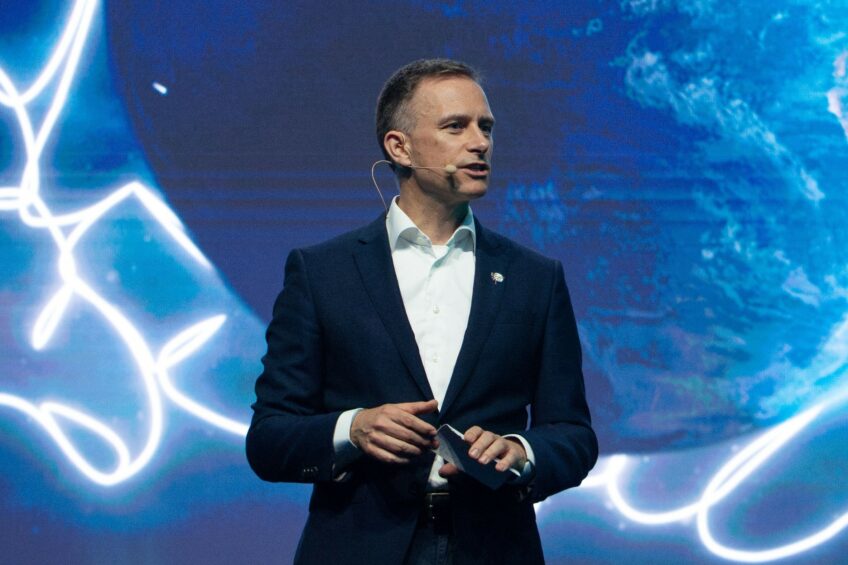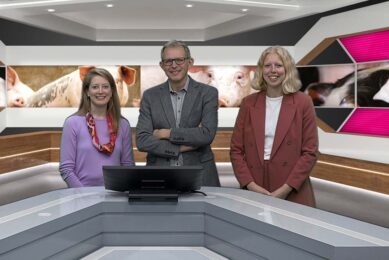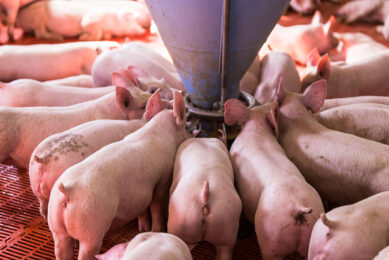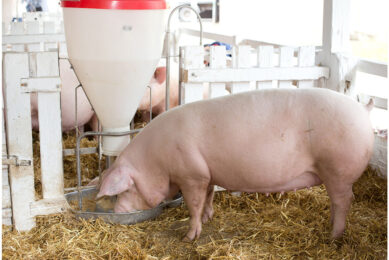World Nutrition Forum: sustainability in agriculture

When it comes to sustainability the time to be proactive is now. Acting in crisis generally, costs more and, decisions made are rash and without science. These were the points brought forward at the recent World Nutrition Forum, held in Cancún, Mexico.
The World Nutrition Forum, held by DSM-Firmenich, brought together hundreds of leading experts in the fields of science, academia, research, veterinary medicine, animal nutrition, genetics, business, and feed manufacturing from around the globe. Over a 2-day period they discussed, debated and shared their knowledge. The emphasis on sustainability during the event could not be missed, and is perfectly illustrated by the speakers discussed in more detail in this review.
Good for me, good for the planet
“The agricultural sector is going through both challenging and exciting times,” said the company’s executive vice president Ivo Lansbergen in his opening remarks at the forum. He continued to say, “We are living in a polycrisis – multiple crises happening simultaneously. Climate change, he believes, is the over-arching one. “This will have a huge impact on all of us, both in our private and business lives. What we do now will impact our children, they will either reap the benefits or pay the price.”
How can the industry produce affordable proteins, enough to feed the world, while also making it financially viable for their businesses. And on top of that, at a low cost to the planet?
DSM-Firmenich executive vice president Ivo Lansbergen
In 2050, it is expected that there will be 10 billion people living on this little planet of ours, compared to the current 8 billion. And those 10 billion will all need to be fed. Currently 40% of the world’s landmass is being used for agricultural purposes. But to be able to feed the world in 2050 that needs to increase to 50%, which is not a viable option. Lansbergen called this “the protein dilemma” for the industry. “How can the industry produce affordable proteins, enough to feed the world, while also making it financially viable for their businesses. And on top of that, at a low cost to the planet.”
He is convinced data is the answer, acknowledging that innovations using enzymes need to be continued, but it is not enough. “What we need is transparency based on data,” he said. According to Lansbergen consumers still want affordability and quality. However, they also want to know the eco-impact of what they buy. They want to know that the product is good for them but also good for the planet. And that, Lansbergen believes, will be the driving force for the future.
Companies are learning that they are responsible for the entire lifecycle of their product
Bod Langert, former vice president of CSR and sustainability at McDonald’s
Evolution of corporate sustainability
The societal demands associated with sustainability, which Lansbergen highlighted, have been on the radar of global fastfood chain McDonald’s for quite some time. Bod Langert, the company’s retired vice president of CSR and sustainability, worked in the “sustainability business” for 35 years. He was instrumental in instigating sustainability polices in McDonald’s. Back in those early years sustainability was, for many, like a firefighting exercise.
Langert shared his experiences of what it was like back when he started and how the culture of corporate sustainability is completely different today. Back then there was no language for sustainability, no framework, no reports, no jobs. It was considered peripheral; the approach was reactive – fix the problem and move on. In many ways this approach cost companies more, rash decisions made with no science behind them. In fact, Langert recalled, it wasn’t until 2014 that the CEO at the time, Don Thompson, decided he was sick and tired of being reactive, he wanted to move to a proactive strategy and create a sustainability framework.
“Corporate sustainability has come a long way,” Langert said, adding that “companies are learning that they are responsible for the entire lifecycle of their product.” The mindset has changed. Corporations have entire departments dedicated to sustainability. They are publishing reports, setting goals and targets and communicating their wins.
Not everyone is on board
He feels, however, that still today not everyone is on board. Generally, when it comes to sustainability people are in 1 of 3 camps: Believers, fence sitters and sceptics. And of course, it is challenging but sustainability is such a broad issue. It is not just about doing the right thing; it also makes good business sense. There is much to be gained from a good sustainability strategy. “After all, people want to feel good about the products they buy,” he concluded.
Our kids learn in school that changing their diet is one of the most effective ways of reducing our impact on the climate. And that is simply not true
Dr Frank Mitloehner of the University of California
Methane: The Achilles heel of agriculture
Next on, Dr Frank Mitloehner of the University of California said that agriculture’s impact on the environment has been misrepresented. He said, “Our kids learn in school that changing their diet is one of the most effective ways of reducing our impact on the climate. And that is simply not true,” he said. “In fact, it would take two years of being vegan to make up for one Trans-Atlantic flight.”
Dr Mitloehner explained that methane is a “flow gas,” it can be produced, but also consumed and destroyed. Whereas CO2 is a “stock gas,” that just accumulates. He said, “I am not saying that methane doesn’t matter, what I am saying if you were to calculate its impact on warming correctly you need to look at not just the sources but also the sinks.”
With the 2050 challenge looming and the growing demand for protein-sourced food, Dr Mitloehner said it’s essential to look to four main tools for the solution:
Improve reproduction efficiency;
Improve livestock health;
Improve genetics – this is the greatest tool; and
More energy-dense diets.
Because, he concluded, moving forward “the demand for more protein-sourced food should be satisfied by more efficient animals and not just more animals.”
Common thread World Nutrition Forum
A common thread could be seen in the presentations made over the 2 days of the forum. The strongest of which was that data are critical if sustainability goals are to be achieved. Because improvement is impossible if the current situation is unknown, i.e. making the invisible visible. Data are not enough though, this journey has to be made together, through the entire value chain from the farmer to the consumer. And last but by no means least, sustainability is not a “should-have,” but a “must-have.”
 Beheer
Beheer








 WP Admin
WP Admin  Bewerk bericht
Bewerk bericht